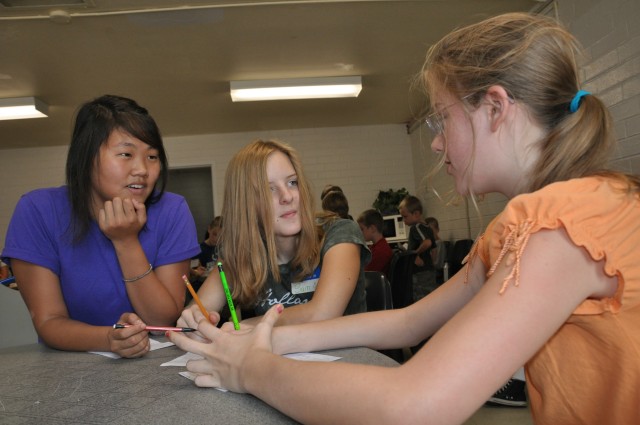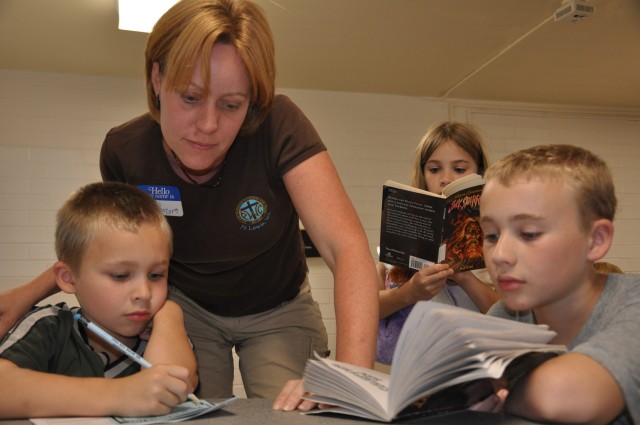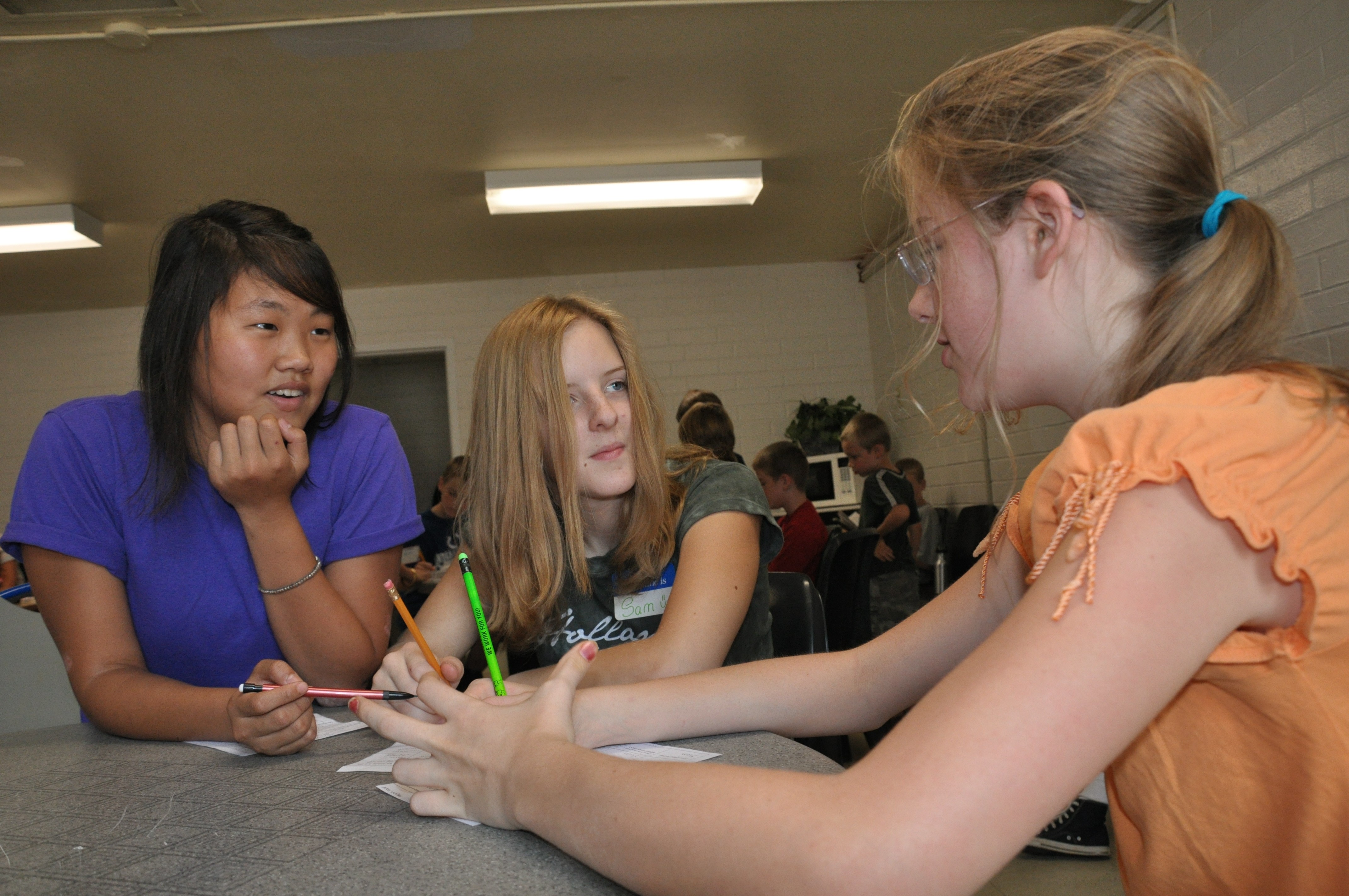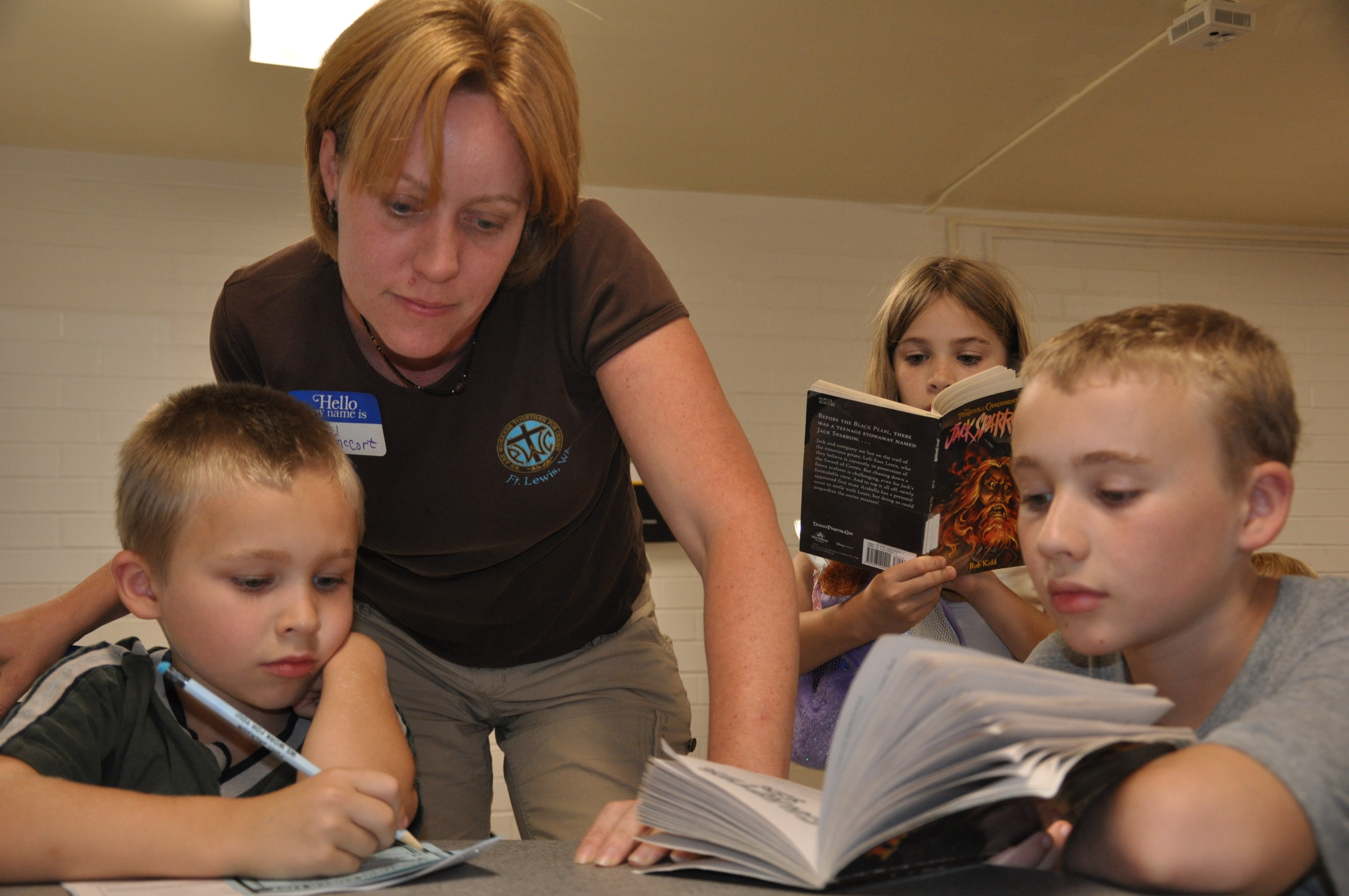FORT JACKSON, S.C. -- What do Thomas Edison, Sandra Day O'Connor, Will Smith and the Jonas Brothers all have in common'
Other than being pioneers within their fields and famous for various reasons, all of these famous Americans were home-schooled before they became household names.
According to the National Home Education Research Institute, about 2 million students in grades K-12 are being home-schooled in the United States. That number is expected to grow by an average of 8 percent annually.
Parents who choose to home-school their children do so for various reasons, such as to provide a customized curriculum to meet special needs or simply to enhance family relationships.
Although the Department of Defense Education Activity's policy is to neither encourage nor discourage sponsors from home schooling their children, it does state that it recognizes home schooling is a sponsor's right and can be a legitimate form of education for his or her dependents.
For parents like Rachel McCort, whose husband is stationed at Fort Jackson, home schooling has proven to be the best option for her family, she said.
Six years ago McCort decided to home-school her children, now ages 11, 10 and 7.
"My eldest (child) was going to be in his third school by the time he started first grade," McCort said. "Because of the moves and the transitions, his kindergarten teacher said he was behind. If he had gone to another school, he probably would have been held back.
"He was so clever in math and science, but his reading skills were behind," she said. "I decided I'm not going to have my kids dealing with this every time we move - not being able to keep up."
So McCort went online and found a curriculum to meet her children's needs. She admits she was worried about teaching at first, but the longer she did it, the more comfortable she became.
"Now I'm able to pick and choose from different curriculums because I know my kids' learning styles and I can easily identify in what ways they learn best," she said. "I can really cater to them."
Understanding a child's learning style is key to successful home schooling, said Kathleen Carper, president of the South Carolina Association of Independent Home Schools.
"We all have different learning styles," Carper said. "Some of us are visual learners, some of us are auditory learners and others are kinesthetic learners - more hands-on.
"When we teach to our child(ren), we tend to want to teach the way we learn. So we need to learn our own style of learning, then our student's style of learning to adapt the curriculum to match the child's needs."
And through home schooling, the child can work at his or her own pace, Carper said.
That's something that McCort said her children need.
"They can work as fast as they want, at their own skill levels and advance when they need to advance," McCort said. "If there's something that they don't know, they don't have to worry about trying to scramble to keep up because everybody else is moving up. They never feel as though they are behind."
The flexibility of not having to follow a traditional school calendar, allows McCort and her children to pack up and go at any time; they can pick up from where they left off in the curriculum no matter where they go.
In South Carolina, parents may home-school their children in one of three ways: through their local school districts, through the South Carolina Association of Independent Home Schools or through a private home school association. Fort Jackson has a home-school group that assists about 30 families, or 60 students.
Home-schoolers can use traditional text books or books and resources from the library, correspondence courses online, or video and satellite programs, Carper said. Once they reach high school, home-schoolers can enroll in available courses at colleges or universities to receive both high school and college credit. They sometimes have more flexibility to participate in internship and shadow programs.
Home-schooled children registered with Fort Jackson's Parent Central Services can participate in Child, Youth and School Services programs and activities.
To encourage socialization, Carper recommends home schooling families get involved with support groups.
"They are a great way to develop some really close friendships," she said.
McCort said she recommends that military families especially look to join military-based home-school support groups because of the camaraderie.
"Even though we live off (post), we'll drive to Fort Jackson to take part in their military home-schooling group because all the kids here know what it's like to be the new one," McCort said. "They're very welcoming, and my kids never have to worry about being the outsiders of the group."
Bethany Storlazzi, who heads Fort Jackson's home-school group, shares McCorts sentiments.
"Groups like ours are nice because we really understand each other," Storlazzi said. "We know what it's like to have one or both parents missing a lot of the time, so we have to deal with issues that don't necessarily touch other home schooling families. We've got a really great bond here; nobody understands us like us."
For more information about home schooling, contact Ann Gordon, Fort Jackson School Liaison Officer, at 751-6150.




Social Sharing